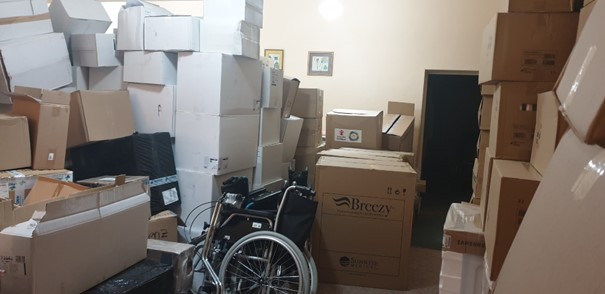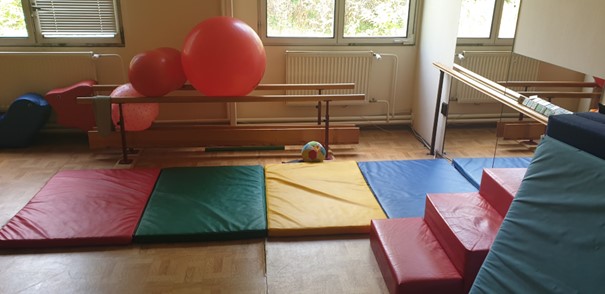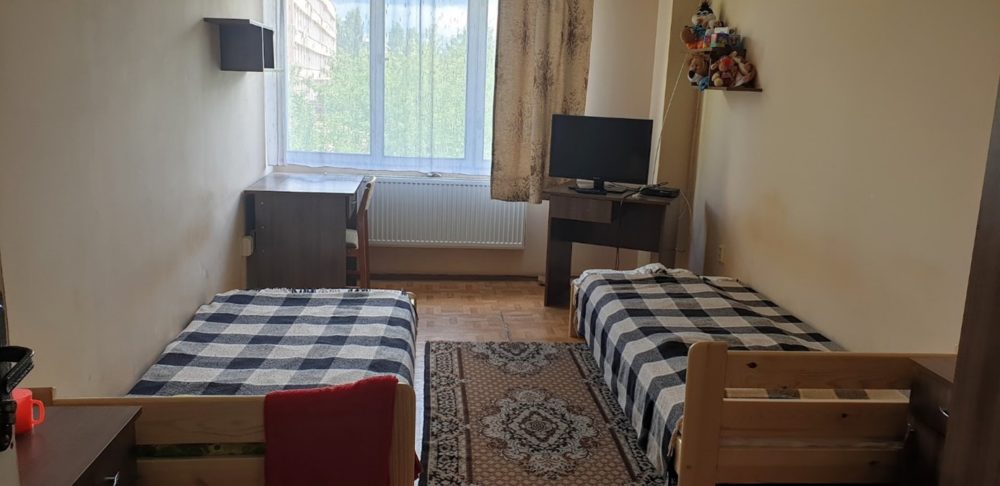These are the words of Michaela Hajduková, of the Slovak Disability Council (NROZP). Michaela is talking about her visit to the Uzhhorod Centre for Persons with Disabilities in late 2022 as part of the work done under the CBM EDF Ukraine Response programme.
This blog was written by Phillipa Tucker, Central and Eastern Europe Coordinator, phillipa.tucker@edf-feph.org
Michaela led the team that identified, bought and transported over 160 000 Euros worth of beds, linen, specialized food, medicines, disability related equipment, hygiene and bathroom products, diapers, baby goods, cooking utensils, lights, garbage bags and a hundred other small and seemingly insignificant items. These items might each be small but they are vital to every person living in a dignified manner, and the small team, Michaela and her colleague Marcel Gondkovič, worked very long hours to find, buy, and transport these goods to the small center just inside the borders of Ukraine.

Michaela and Marcel explain:
We had been driving goods to Uzhhorod for 2 months and every time we only had gone to the storage house of Doroga Zhittja (a daily centre for people with disabilities in Uzhhorod that has been serving as a centre for Ukrainians with disabilities fleeing from the war) situated in the suburbs of the city of Uzhhorod. In July we asked the director if the storage house was the place (the premises) that should be rebuilt and where people were supposed to spend their time before leaving Ukraine for Slovakia or other countries. All that we had seen until then, were gloomy rooms full of goods we had bought. The director burst into laughter and drove us to the centre itself in the city of Uzhhorod. We were really amazed when we came there.

The premises of the centre were full of life, the clients bred animals (fish, parrots and a therapeutic dog) there, every employee was doing something meaningful with the clients. The residents showed us their rooms with the furniture we had bought, the women were in the kitchen preparing meals from the food that we had bought and babies were eating special food we had bought. It was really great to see that our work was important to them and that they were using everything they were given from us. We were driving home really impressed and full of new ideas of what else to buy for whom.
From that time our purchases were much more personal and tailored to their specific needs. We even imagined concrete people we were buying something for.
Michaela described the visit: “Behind every door there was a beautiful story that played out”. As Michaela explained it to the Central and Eastern Region Coordinator, Phillipa Tucker: Behind one door there was an elderly lady babysitting some small children and reading to them. Behind another door there was a physiotherapist working with an older child. Behind another door was a group of children doing some school lessons with a young adult. And so on and so on. Hearing about how the transit centre provide for persons with disabilities in the way that they each personally needed was inspiring to the team behind the scenes in Brussels at EDF.

As The Slovak Disability Council Chair, Branislav Mamojka, says “In the emergency situation, the centre needed us to do these tasks for them and buy and transport the goods. Now they have developed in such a way that they are able to do themselves. The most difficult task for us was to get across the border. The lines were incredibly long, even the humanitarian aid queues. And there were long waits, especially to get back across the border.”
“We are one hundred percent sure the work we have done was necessary. The director of the centre and his colleagues are hard working people who have set up the system of their work really well. They know what to do and who needs what. Thanks to the money we have had at our disposal we could help “make their dreams come true”. Without the financial help they wouldn’t have been able to realize the activities that are core to them in the times of the war and people staying in the centre would have had it much more difficult to cope with the situation and decide what to do next, where to go and how.”